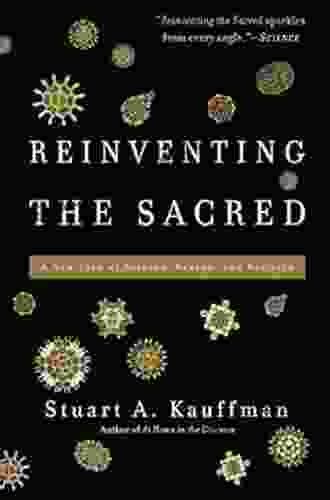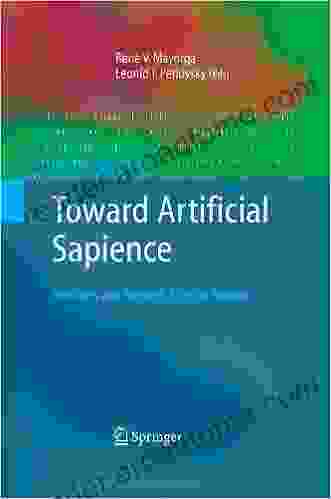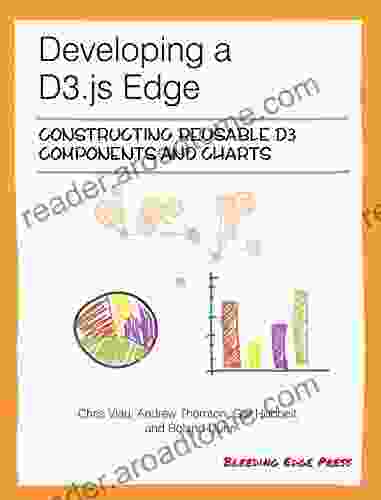Principles and Methods for Wise Systems: A Comprehensive Guide

Wise systems are intelligent systems that can reason about their own behavior and make decisions based on their knowledge and understanding of the world. They are able to learn from experience, adapt to change, and solve complex problems.
The development of wise systems is a challenging task that requires a deep understanding of a wide range of disciplines, including artificial intelligence, machine learning, data mining, knowledge representation, reasoning, planning, decision making, and control.
This comprehensive guide provides a thorough to the principles and methods for wise systems. It covers the fundamental concepts of wise systems, the different types of wise systems, and the techniques used to design, implement, and evaluate wise systems.
4 out of 5
| Language | : | English |
| File size | : | 3074 KB |
| Text-to-Speech | : | Enabled |
| Print length | : | 256 pages |
The fundamental concepts of wise systems include:
- Intelligence: Wise systems are intelligent systems that can reason about their own behavior and make decisions based on their knowledge and understanding of the world.
- Knowledge: Wise systems have a knowledge base that contains information about the world. This knowledge can be used to reason about the world and make decisions.
- Reasoning: Wise systems use reasoning techniques to infer new knowledge from their existing knowledge.
- Planning: Wise systems use planning techniques to generate plans of action that will achieve their goals.
- Decision making: Wise systems use decision making techniques to select the best course of action from a set of alternatives.
- Control: Wise systems use control techniques to execute plans of action and monitor their progress.
There are many different types of wise systems, including:
- Expert systems: Expert systems are wise systems that are designed to solve problems in a specific domain. They are typically developed by experts in the domain and contain a large amount of knowledge about the domain.
- Machine learning systems: Machine learning systems are wise systems that can learn from data. They are typically trained on a large dataset and can then be used to make predictions or classifications on new data.
- Data mining systems: Data mining systems are wise systems that can discover patterns and trends in data. They are typically used to find hidden insights in large datasets.
- Knowledge representation systems: Knowledge representation systems are wise systems that can represent knowledge in a computer-readable format. They are typically used to develop knowledge bases for expert systems and other wise systems.
- Reasoning systems: Reasoning systems are wise systems that can infer new knowledge from their existing knowledge. They are typically used to develop inference engines for expert systems and other wise systems.
- Planning systems: Planning systems are wise systems that can generate plans of action that will achieve their goals. They are typically used to develop planners for robots and other autonomous agents.
- Decision making systems: Decision making systems are wise systems that can select the best course of action from a set of alternatives. They are typically used to develop decision support systems for humans and other agents.
- Control systems: Control systems are wise systems that can execute plans of action and monitor their progress. They are typically used to develop controllers for robots and other autonomous agents.
The techniques used to design, implement, and evaluate wise systems include:
- Knowledge acquisition: Knowledge acquisition is the process of acquiring knowledge from experts and other sources.
- Knowledge representation: Knowledge representation is the process of representing knowledge in a computer-readable format.
- Reasoning: Reasoning is the process of inferring new knowledge from existing knowledge.
- Planning: Planning is the process of generating plans of action that will achieve goals.
- Decision making: Decision making is the process of selecting the best course of action from a set of alternatives.
- Control: Control is the process of executing plans of action and monitoring their progress.
- Evaluation: Evaluation is the process of assessing the performance of wise systems.
This comprehensive guide has provided a thorough to the principles and methods for wise systems. It has covered the fundamental concepts of wise systems, the different types of wise systems, and the techniques used to design, implement, and evaluate wise systems.
Wise systems are a powerful tool that can be used to solve complex problems and improve our lives. As the field of wise systems continues to develop, we can expect to see even more amazing applications of this technology.
4 out of 5
| Language | : | English |
| File size | : | 3074 KB |
| Text-to-Speech | : | Enabled |
| Print length | : | 256 pages |
Do you want to contribute by writing guest posts on this blog?
Please contact us and send us a resume of previous articles that you have written.
Light bulbAdvertise smarter! Our strategic ad space ensures maximum exposure. Reserve your spot today!

 Noah BlairEmbracing the Convergence of Science, Reason, and Religion: A New Vision for...
Noah BlairEmbracing the Convergence of Science, Reason, and Religion: A New Vision for... Tyler NelsonFollow ·16.9k
Tyler NelsonFollow ·16.9k Charles ReedFollow ·2.4k
Charles ReedFollow ·2.4k Jacques BellFollow ·8.5k
Jacques BellFollow ·8.5k Ike BellFollow ·16.3k
Ike BellFollow ·16.3k Jerome PowellFollow ·10.2k
Jerome PowellFollow ·10.2k Dustin RichardsonFollow ·16.6k
Dustin RichardsonFollow ·16.6k Javier BellFollow ·11.9k
Javier BellFollow ·11.9k Ralph TurnerFollow ·17.7k
Ralph TurnerFollow ·17.7k

 Brady Mitchell
Brady MitchellUnveiling the Apprehended Vital Truth for the Bride of...
In the tapestry of life, where trials and...

 Eric Nelson
Eric NelsonDivine Energy Harmony Way: Embracing the Power Within for...
In the realm of personal...

 Robert Louis Stevenson
Robert Louis StevensonUnlock the Secrets of Calf Growth and Development: A...
Are you an aspiring...

 Gerald Parker
Gerald ParkerPhysician Life In The Shadow Of Polio: A Harrowing and...
A Riveting Tale of Determination Amidst a...
4 out of 5
| Language | : | English |
| File size | : | 3074 KB |
| Text-to-Speech | : | Enabled |
| Print length | : | 256 pages |




















































